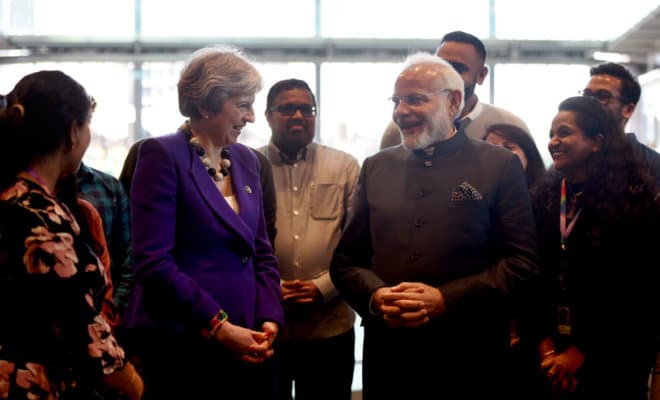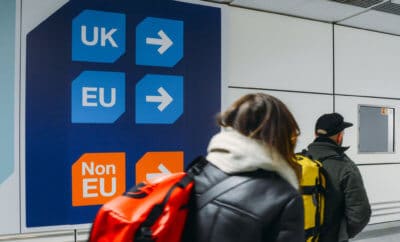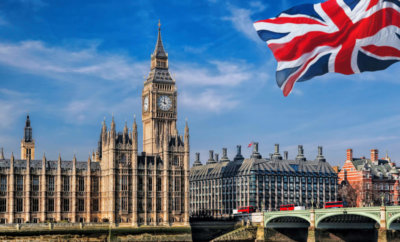Immigration
India-UK Agreement on Returning Illegal Migrants Faces Barriers

Indian Prime Minister Narendra Modi with UK counterpart Theresa May in London.
Photo: Press Information Bureau
Lack of agreement over issues such as the consent clause, security concerns and fear of large-scale deportation is hindering the signing of the pact, according to a report.
The India-UK bilateral agreement on returning illegal immigrants, which was put off when Indian Prime Minister Narendra Modi visited London in April for the Commonwealth leaders meet, is facing fresh hurdles, the Hindustan Times reported.
Issues like the consent clause, security concerns and fear of large-scale deportation need to be resolved first before the pact can be signed by both the countries, the publication reported citing an Indian official with knowledge of the proposed agreement. As per the consent clause, a person has to give an approval before the process to determine his or her nationality is initiated.
Although the Indian government wants this clause, since it will provide relief in some cases, the UK government is not very keen on it because it would involve making an exemption for an undocumented individual staying in Britain, the report said. The Indian Ministry of External Affairs did not respond to questions regarding the proposed pact, the report added.
A spokesperson of the British high commission in New Delhi told the publication that the United Kingdom is eager to have further discussions with India on the Memorandum of Understanding (MoU).
India is worried that a huge number of Indians can be deported “without any humanitarian consideration that’s shown to economic migrants or irregular migrants who could be in the United Kingdom today and in another country the day after,” another official was quoted as saying.
The largest group of illegal migrants in the United Kingdom is from India, estimated to number between 75,000 and 100,000. The British authorities have been asserting that these Indian citizens should return to India. Around 5,000 Indians went back to their country voluntarily while nearly 700 were deported in 2017, the report said.
The United Kingdom is contending that the MoU will help restructure the migration process, another Indian official told the publication. For example, United Kingdom envisions that if a person who is returning possesses an Indian passport, verification should be completed in a span of 17 days. However, if he or she does not have a travel document, the verification procedure should be completed in 70 days. In short, the MoU would help in ensuring that the illegal migrant returns within a specified time frame. As soon as the nationality of the person is determined to be Indian, an emergency travel certificate should be issued by the Indian mission, UK authorities have proposed.
While discussing the MoU, the United Kingdom gave India an assurance that the agreement will only help to codify the present immigration rules and that the United Kingdom has similar pacts with countries such as Nigeria and China. These are nations with a large number of citizens who are staying in the United Kingdom illegally.
Discussions regarding the MoU have been going on for months and one of the reasons for the failure to sign the pact earlier was said to be the Theresa May government’s controversial stance regarding treatment of the citizens of the Commonwealth.
The MoU was reported to have been discussed during the London visit of Indian Minister of State for Home Affairs Kiren Rijiju in January this year and was initialed by UK Minister for Immigration Caroline Nokes. According to the MoU, authorities will have 70 days to verify and confirm the identity of suspected illegal Indians.



